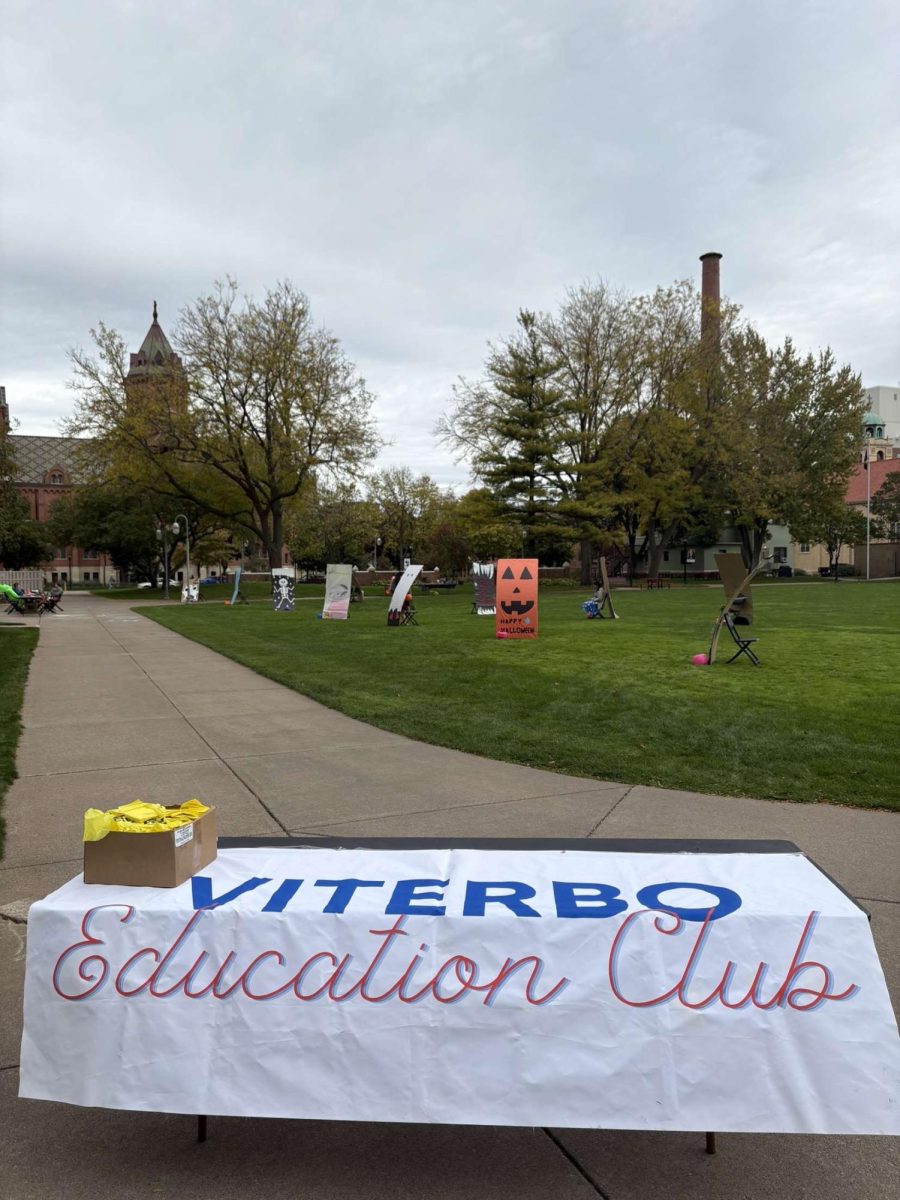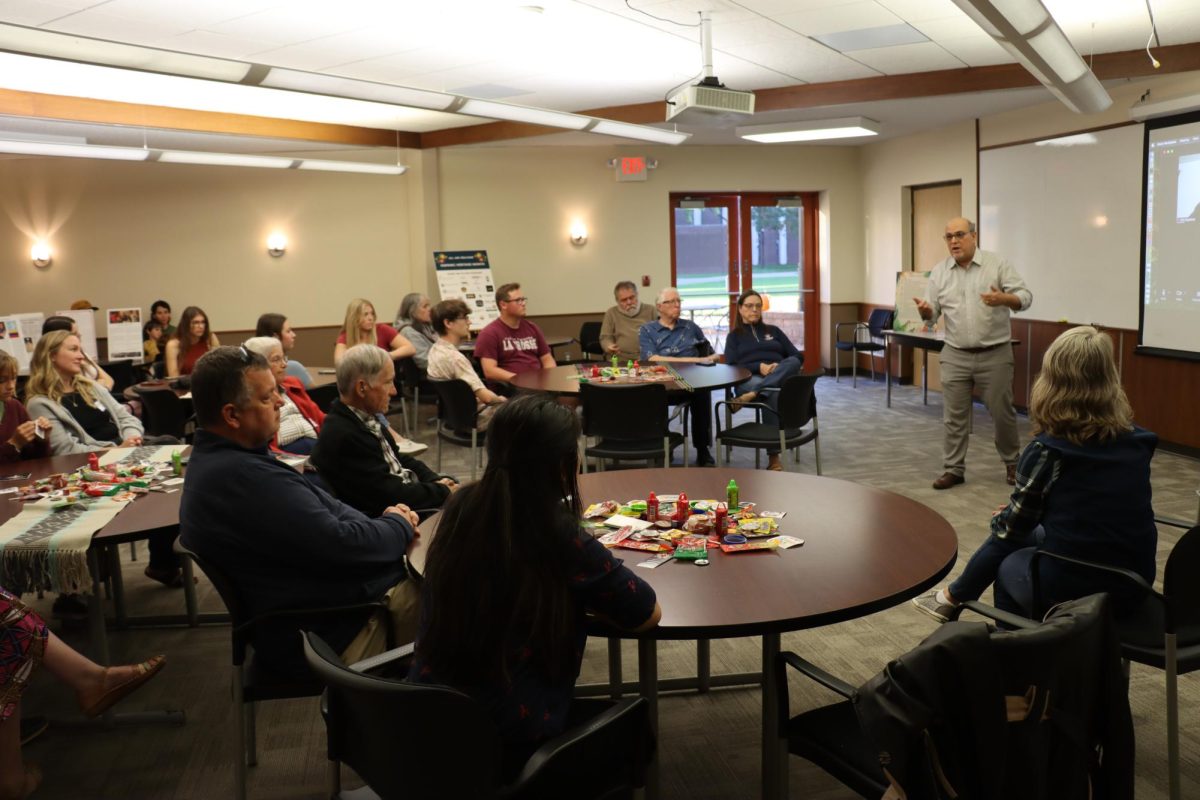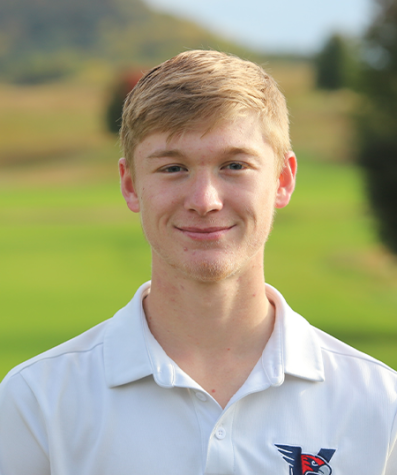The engineering program is one of the newest programs at Viterbo, and its recent accreditation by ABET has given it the platform to work on several important projects throughout the community. Students working on their capstone projects have done work with local organizations, businesses, and city officials, and as La Crosse’s only engineering program, their influence is beginning to be realized.
Professor Richard Harned is a leader in the engineering department and has been working closely with students on their capstone projects. Harned is a co-founder of Hawk Works, and he has been working in engineering for decades, originally in aeronautical engineering before beginning his journey as an educator.
Harden started at Viterbo with the goal of developing students’ communicative abilities and technical skills. He says, “When I said I was going to come over here and be part of engineering, I want to teach it the way it should have been taught when I was in undergraduate.” Part of that teaching philosophy is a multi-disciplinary approach to projects through Hawk Works.
There are five projects under the Hawk Works designation, ELeMEnt-Health, Hawk Works Connect, ARCH, RESULTS, and HEAT. ELeMEnt-Health is designing a trishaw bike for Bethany St. Joseph Corporation, Hawk Works Connect is an app for connecting volunteers, ARCH is working with Mayo Clinic, RESULTS is working with La Crosse’s unsheltered population, and HEAT is working with Chart Energy and Chemical. More information can be found here.
Harned emphasizes, “You’ve got to have the skills that you can work outside of the academic world here. You’ve got to be able to work with diverse populations who are not familiar with your discipline.” That’s what many students are doing for their projects. For example, the RESULTS group saying that it has been the most valuable part of the project thus far. They state, “[The most valuable part is] communicating with multiple groups and seeing a perspective on things that most people don’t get to see.”
Harned says, “I ask them all the time, ‘What have you learned? What takeaway [did you have]; what have you learned?’ Over and over again, people say, ‘It takes longer than we thought it would.’” The Hawk Works Connect group elaborated on this point, saying, “Projects require a long time and a lot of resources because communications take a long time, so start early and be patient.”
The program also helps support other STEM students who may not have capstone projects, which is a key part of the Hawk Works program. Harned says, “They have so few students, so they can come on board also… It’s doing what we had hoped it would do; it’s multidiscipline.”
Another part of the program that has made is so successful is the value it provides to the community. Harned states, “We don’t do things in a vacuum, which is huge.” And by making projects available to students of various backgrounds, new opportunities can open up. Harned claims, “You’re most successful when you bring everybody who [can provide] any kind of a touch to whatever you’re doing, all in the room at the same time.”
Being able to effectively plan and manage the projects is integral as well. Harned says, “I’m trying to teach our students that you have to involve everybody from the very beginning. You don’t wait until you’re ready to test to see if the test facility is ready to go.”
Viterbo engineering is proving every year to be an increasingly lucrative investment and a success for the university. Students are being hired within the community and going on to lead successful professional lives. Harned says, “I’m very proud that we are creating a product that the local engineering groups are recognizing.”
Viterbo’s engineering students active experience in their capstone projects set them up to be leaders in their organizations, and their communication within teams makes them stand out. Harned says, “It tells me something when [companies] fly people in from across the country to interview for a position and they still pick our people. We must be doing something good.”


